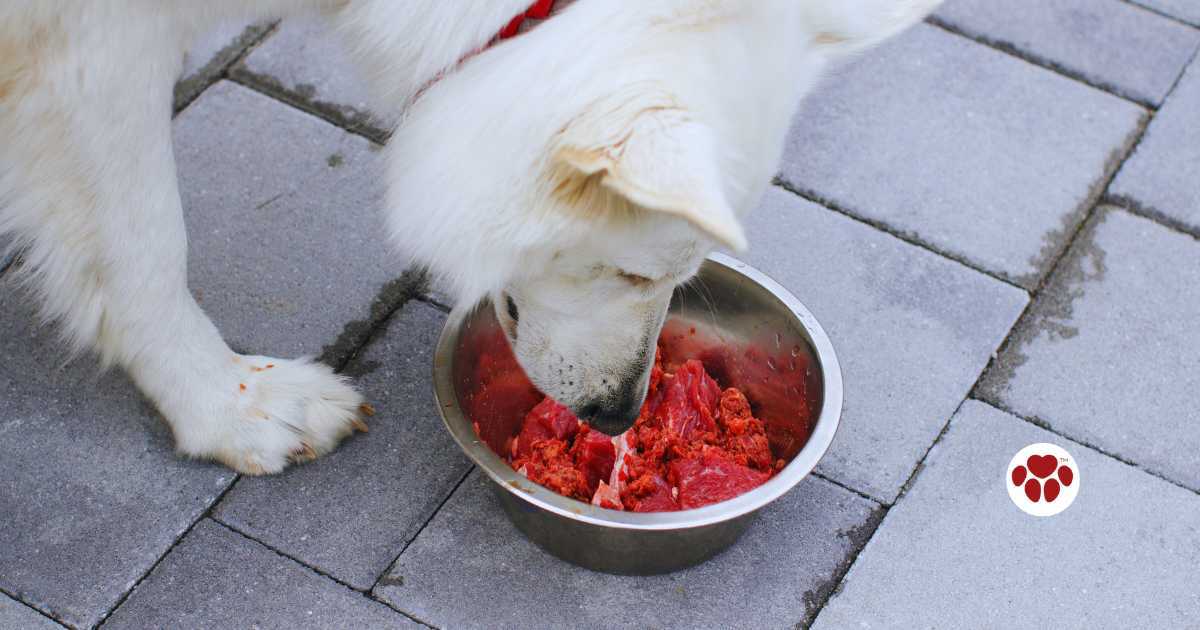
The Best and Worst Ways to Feed Your Pet Organ Meats
|
|
Time to read 5 min
|
|
Time to read 5 min
Food is essential to survival and is, in fact, one of the factors that affect a dog's lifespan . However, as with humans, when it comes to feeding your pet, their nutritional needs should be at the forefront of every choice you make. When you have determined those needs, you also have to understand how to meet them with the meals you provide, meals like organ meats.
There are great ways to feed your pet's organ meats and bad ways to do so. Read along to learn more about organ meats and how to incorporate them into your pet's diet.
Table of Content
Organ meats, commonly known as offal, are animal organs, not including muscle meat, that can be eaten for food. Simply put, they are the internal organs of animals. Popular examples are the tripe, tongue, heart, gizzard, and secreting organs like the liver, lungs, and kidneys.
Organ meats for pets can be obtained from pigs, chickens, beef, and cattle (beef). However, organ meats like beef liver and ground beef heart are typically preferred as they are nutrient-dense.
Organ meats are a nutritional powerhouse for dogs and cats. They are high in amino acids (building blocks of protein) but with varied amounts of vitamins, minerals, and other nutrients more than muscle meat.
Vitamins: Animals' hearts, livers, and kidneys are rich in B vitamins, such as B1, B2, B6, folic acid, and B12. These aid digestion, cardiac health, brain function, metabolism, and skin health. They also contain other vitamins: vitamins A, D, E, and K are all fat-soluble vitamins that aid bone health, vision, and immune health.
Minerals: Trace minerals like iron, copper, zinc, and manganese are well sourced in offal. They are essential in hormone regulation, protein synthesis, and immune and nerve function.
Knowing what can go in your dog's bowl is only half the work. The rest involves understanding how to give those meals to them. Let's explore how to avoid this when feeding organ meats to your pets.
Many people prefer to feed their pet organ meats fresh and uncooked, as some nutrients are lost during cooking. If that is you, ensure you obtain the raw beef, meat, or offal in small batches from a reputable vendor to ensure its quality and to prevent the risks of parasites.
Unprocessed organ meats that are not typically consumed by humans often do not go through the same hygiene procedures as meat products, and could contain harmful bacteria and parasites that could cause infections. It is also vital to ensure the organs are sourced from healthy animals who would be considered fit for human consumption.
We have established offal as a popular source of iron, B vitamins, protein, and other nutrients that matter for your pets. However, an offal-only diet is not the way to go. This is because offal parts like beef heart and liver are high in fat, vitamin A, thyroid hormone, and other nutrients that can accumulate in the body. Plus, despite their noteworthy composition, organ meats are not nutritionally complete, so dogs and cats can't survive solely on them.
If there are the worst ways to feed organ meats to your pet, then indeed, there are the best ways. The most obvious is to avoid raw food and cook it to kill disease-causing bacteria like E. coli and listeria.
Offal should only constitute 5-10% of your pet's daily meal. Exceeding this recommendation could cause Iron toxicosis and affect your pet's kidney and liver functions.
Unless you have taken the necessary precautions, we recommend avoiding feeding your pet raw offal. The recommended temperature for cooking organs is between 121°C and 180°C. Boiling takes 12-15 minutes, while baking could take up to 30 minutes to complete cuts like beef liver.
Raw offal should be frozen or refrigerated in freezing bags or containers until ready to use them. Avoid adding discolored, off-smelling, or expired offal to your dog's food.
Organ meat formula is a quick and easy way to leverage the benefits of organ meats without having to source, handle and prepare raw meat each time you want to add offal to your pet's meal. If you are unfamiliar with the term, organ formulas are nutritional supplements made from beef, chicken, or fish offal. They are added to food served to dogs to help meet their dietary requirements.
There are many places where you can purchase organ meat formulas; however, our favorite is Paw Origins' Primal-Vitality™ Beef Organ Complex. This powdered, utterly natural supplement is made from 100% grass-fed cattle with no added hormones or fillers. Made from a healthy liver, heart, kidney, pancreas, and spleen, Primal-Vitality™ elevates your dog's health in all the right places: joint mobility, immune health, digestive, and overall vitality.
Paws Origins' Primal-Vitality™ Beef Organ Complex recommends serving sizes for its organ formula based on your dog's weight.
Find your dog's weight class on the right and mix the recommended amount with your dog's meal once daily.
As you introduce something new to your pet's diet, remember to watch for changes like loss of appetite, as that might indicate that you need to make changes to improve their appetite.
Want to include organ meat in your pet's diet? Give them Primal-Vitality™ Beef Organ Complex!
Beef organs and beef supplements are rich in essential nutrients, vitamins, and minerals that play a crucial role in supporting your pup's overall health and maintaining a healthy immune system. It is necessary to offer them beef organs as nutritional support to fortify their health. If finding specific fresh beef organs can be quite hard, your veterinarian can suggest beef liver supplements, beef heart supplements, beef kidney supplements, and other organ-specific supplements to your canine friend.
Do you want beef organs for your dogs without the hustle? Our Primal-Vitality™ Beef Organ Complex is the answer!



